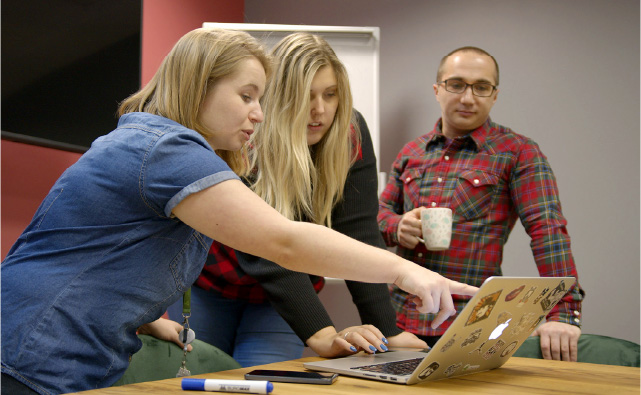The Lohika engagement started in 2016. Initially, Lohika was brought in to help the engineering organization grow quickly and deliver key features requested by the market on time. The Lohika team delivered a few important milestones on time.
Throughout the engagement, the Lohika dev team contributed to the development of all components of the system: backend (Java, Dropwizard), front-end (React/Redux, Redux-saga), mobile (Android and iOS), ETL and reporting (Amazon Redshift, Amazon RDS).
The Lohika QA team was involved in the early stages. The QA team designed and implemented a test framework, then defined essential test scenarios and created test automation suites (Geb and Selenium). Over time, we increased the automation test coverage, and created tests for web, iOS and Android apps.
Automation became an important part of the product delivery process with a go/no-go gatekeeper for all platforms. Both iOS and Android native clients were covered by Appium following the BDD process. We integrated test execution with third party testing platform providers (e.g., SauceLabs, BrowserStack) for web and mobile-native clients. Our QA team continues to manage this process today.
Starting from the ground up, the Lohika QA team set a significant level of test coverage, improved reliability and reduced test execution time by implementing a test code review process. The Lohika team designed and created from scratch a shared Java test library to provide a common approach that can be reused across all test codebases.
On top of that, the Lohika team delivered a load and performance test framework (leveraging Gatling) to emulate realistic high-load scenarios on the system. Performance tests helped to identify DB bottlenecks and prevent performance issues from reaching production The Lohika team ensured that the service can not only handle the expected load, but can predict and mitigate potential risks in advance.













